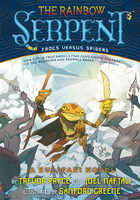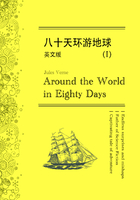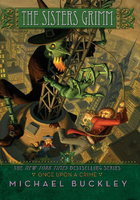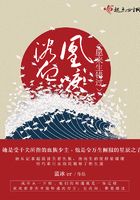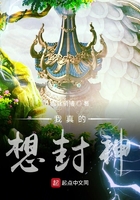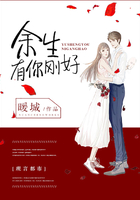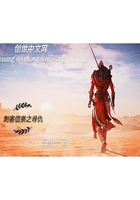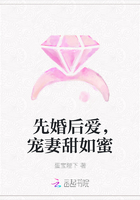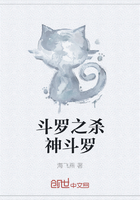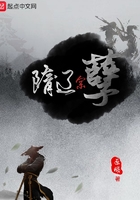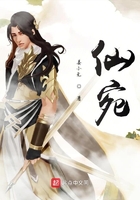Preface
BY ALISA MALINOVICH
In the summer of 1992, Anton Mueller at Grove/Atlantic met with my mother to suggest an idea for a book proposal he was excited about. He'd been thinking, he explained, about the extraordinary differences between the lives of his grandmother, mother, and sister, and he envisioned a book that would capture-through a collection of narratives-how American women's lives have changed over the past century. Intrigued by the idea but hesitant to undertake a task of such breadth while remaining committed to her work on violence prevention (her first book had been out just over a year and she was busy lecturing and writing on the topic), my mother considered the possibility of my coauthoring the book with her. After all, she thought, it would make perfect sense for a mother and daughter to embark on this project together. I'd bring a different perspective to it, and the youngest women might feel more comfortable with and be able to open up more easily to me.
I remember standing in the kitchen of my mother's apartment, thinking about what an amazing opportunity it would be. Of course, the idea of entering into a long-term project with my mother in the dawn of my twentieth year sent a vague wave of anxiety rippling through my chest. I was on the brink of adulthood, and these years were supposed to be (this part always makes my mother laugh) the time to "individuate." But I am blessed with a mother who, for as long as I can remember, has taken me seriously as a person and as a writer. I believe it is that faith in and respect of me that (despite undeniable moments of panicked claustrophobia) carried our successful partnership through.
The project had immediate appeal and made sense to me: My summer job was that of kindercamp counselor at the Westside YMCA in Manhattan (a place that reflected the world I'd grown up in), and indeed I'd been struck by the enormous changes that had taken place since my own childhood. Working mothers were now the norm, and nannies and fathers were major presences in the drop-off/pick-up scene (though dads were generally seen doing morning drop-offs on their way to work). The landscape felt radically different from the sea of moms I remembered dropping us off and picking us up in the mid to late seventies.
At the same time that I was interested in finding out more about the changes that had taken place in my own world, I was excited about the prospect of interviewing women whose lives and backgrounds were very different from my own. I can remember performing in my summer camp's version of the feminist musical Free to Be You and Me as a ten-or eleven-year-old child and hearing my mother complain about the way the mail always came addressed to "Dr. and Mrs." (she'd earned her doctorate years before my father earned his). All my life I'd been surrounded by people who were familiar with feminism, and although I'm sure I also spent time with people who weren't, we never discussed the subject, so that the difference wasn't revealed to me. I'll never forget my surprise when, at the end of an interview, I asked a seventeen-year-old girl in the Bronx what feminism meant to her, and she responded by saying, "Feminist? I think it means you're feminine. Nice, polite, sitting proper. More of a girl than a tomboy." I felt sort of like Dorothy in The Wizard of Oz-"Toto, I don't think we're in Kansas anymore."
My mother and I didn't attempt a scientific study or a random sampling of American women, but we were committed to achieving diversity with regard to race and ethnicity, class, and sexual orientation. We wanted to interview women in different parts of the country and in a wide range of professions. We also thought it would be interesting to trace women's experiences in certain careers through the century, and we therefore interviewed doctors, nurses, and lawyers in each generation. At the same time we were not looking for women with any particular experiences. We did not seek out women who had been raped or abused, just as we did not seek out women who had been happily married.
Only toward the very end of the project, in an effort to fill in some historical gaps, did we choose fewer than ten women based on specific stories that we wanted them to tell. Among them were Sybil Jordan Hampton, who told of her experiences as one of the first black students at Little Rock Central High School; Linda Pesso, who spoke about her life as a wartime bride and suburban homemaker in the 1950s; and Robin Vaccai-Yess, who described high-tech birthing in the 1990s.
The agreement from the start was that I would interview the bulk of the younger women, and my mother would do the remainder. I ended up doing between a quarter and a third of the book and-for reasons that made practical sense-we both occasionally crossed over into each other's age group. We interviewed women in the rural and urban Northeast, and although we made separate trips to places that included Colorado and the Washington, D.C., area, we did the major traveling for the book together. Our first big trip was out west, where we both interviewed women in Southern California. My mother continued up north, while I caught a plane back to New England to start my junior year of college.
The following summer we flew to Louisiana, and from there we rented a car, driving north with stops along the way. Being the northerners (and New Yorkers) that we are, we were quite excited to reach the Mississippi border, and we stopped the car on the side of the road to take pictures at the state line. The South was intriguing in many ways, and, despite warnings we'd gotten about southerners being wary of northerners and especially writer-types from New York, we found the southern women we interviewed and the many people who helped us to be across-the-board friendly and open.
The geographic diversity of the women interviewed was amplified by the fact that many women had moved one or several times during their lifetime. A young woman in Michigan (our final destination) described her childhood in New Jersey; an older woman in California described her courtship in Indiana. In addition, we conducted a number of telephone interviews with women in places we did not travel to.
To find the broad range of women we were interested in interviewing, we networked in lots of different ways. I handed out flyers to supermarket cashiers. A friend of mine leafleted the mailboxes of students in her department at college. My mother contacted a friend who runs a marketing research firm and obtained permission to call women who had been in focus groups. To begin finding women down south, we began with three -major contacts and watched them grow like the branches of a tree-the head of a nonprofit organization put us in touch with five women on his board, and they in turn provided us with access to countless others; a New York City friend put us in touch with a southern relative of hers who led us to several of his women friends; a young woman who had spent a couple of years as a student in Louisiana gave us the number of a well-connected friend who still lived in the area. Each potential interviewee was a potential resource, and thanks to the combined effort of so many people, we wound up with a diverse group of women who had many stories to tell.
The older women were asked to focus largely on their younger days rather than on their present lives, so that their experiences as young and middle-aged women could be compared with the experiences of young and middle-aged women in later years. We ultimately conceived of the women interviewed as spanning three generations. The first generation, born from 1900 to the early 1930s, was-except for the fact that it often influenced their thinking and altered the course of many of their children's and grandchildren's lives-the least affected by the late twentieth century women's movement. The second generation, born from the mid 1930s to the early 1950s, was old enough to have developed to a significant extent before the movement, but young enough to have their lives -affected by it. And the third generation, born from the mid-1950s to the mid-1970s, is essentially post–women's movement. The oldest of them came of age in its heyday.
Of course, in the end, space limitations did not allow for every woman interviewed to appear in the book. It was hard to put fascinating material aside. We can only share our disappointment with the women whose stories do not appear here and offer our assurance that they enriched our understanding. Analysis in the introduction is based on all of the interviews conducted, and in some cases women whose stories do not appear in the body of the book are quoted there.
I learned so much, in so many ways, from the experience of conducting these interviews. It was an exercise in self-restraint to sit with a person for one or two or four hours and listen to her relay experiences and share opinions to which I could not respond. Often I held back the impulse to bounce back with an experience of my own that related to hers or to question an assumption that she made. But in holding back my own responses, I am quite sure that I learned more than I would have from a dialogue of equal length. For the women knew that they were being listened to, not judged, and that it was my intention to hear their experiences and their opinions out, not to respond to or comment on them. In the end I learned a tolerance and surprised myself with the extent to which I could understand where virtually all of the women-some of whom might have been my friends in "real life" and others of whom I would probably never have crossed paths with-were coming from.
There are, of course, those who are unreachable, and when I think of the women I interviewed, I always remember one who turned me away saying, "My life is too horrible to talk about." When we do oral history, we present the stories of those who are willing to tell them, and it seems important to consider the impact that has on who is represented. In the end these women inspired and taught me things. They were open and trusting, and I was amazed at the energy and perseverance that so many of them had in the face of incredible hardship. I can see all of their faces in my mind, and I remember the worlds that they drew me into. There's a sort of magic that happens when you put on the tape recorder and allow someone to talk-their words so often come out like poetry and teach us things that we may already know, but that so often, we forget to remember. I hope that some of that magic is transmitted in the pages to come.

